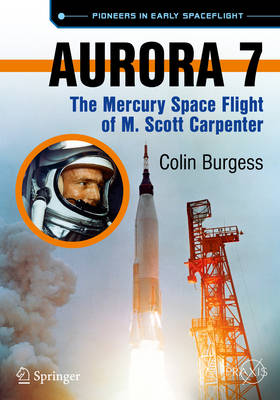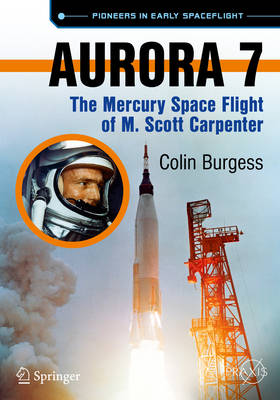
- Retrait gratuit dans votre magasin Club
- 7.000.000 titres dans notre catalogue
- Payer en toute sécurité
- Toujours un magasin près de chez vous
- Retrait gratuit dans votre magasin Club
- 7.000.0000 titres dans notre catalogue
- Payer en toute sécurité
- Toujours un magasin près de chez vous
Description
TO A NATION enthralled by the heroic exploits of the Mercury astronauts, the launch of Lt. Cmdr. Scott Carpenter on NASA's second orbital space flight was a renewed cause for pride, jubilation and celebration. Within hours, that excitement had given way to stunned disbelief and anxiety as shaken broadcasters began preparing the American public for the very real possibility that an American astronaut and his spacecraft may have been lost at sea.
In fact, it had been a very close call. Completely out of fuel and forced to manually guide Aurora 7 through the frightening inferno of re-entry, Carpenter brought the Mercury spacecraft down to a safe splashdown in the ocean. In doing so, he controversially overshot the intended landing zone. Despite his efforts, Carpenter's performance on the MA-7 mission was later derided by powerful figures within NASA. He would never fly into space again.
Taking temporary leave of NASA, Carpenter participated in the U.S. Navy's pioneering Sealab program. For a record 30 days he lived and worked aboard a pressurized habitat resting on the floor of the ocean, becoming the nation's first astronaut/aquanaut explorer.
Following extensive research conducted by noted spaceflight historian Colin Burgess, the drama-filled flight of Aurora 7 is faithfully recounted in this engrossing book, along with the personal recollections of Scott Carpenter and those closest to the actual events.
Spécifications
Parties prenantes
- Auteur(s) :
- Editeur:
Contenu
- Nombre de pages :
- 239
- Langue:
- Anglais
- Collection :
Caractéristiques
- EAN:
- 9783319204383
- Date de parution :
- 15-09-15
- Format:
- Livre broché
- Format numérique:
- Trade paperback (VS)
- Dimensions :
- 169 mm x 244 mm
- Poids :
- 698 g

Les avis
Nous publions uniquement les avis qui respectent les conditions requises. Consultez nos conditions pour les avis.






